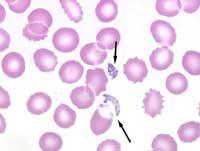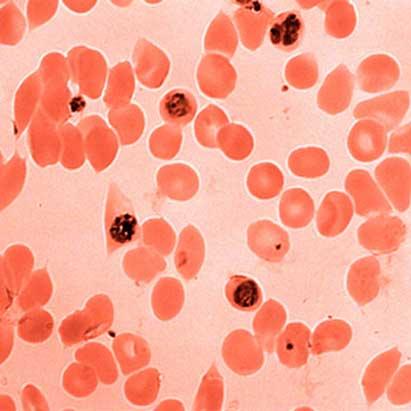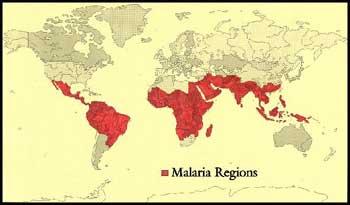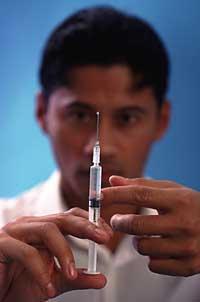Another way to vaccinate malaria
2002/08/28 Galarraga Aiestaran, Ana - Elhuyar Zientzia
The function of vaccines is to keep the body's immune system prepared for infection. To do this, they look for a substance that produces specific antibodies. Normally the tests are performed with proteins of the parasite that produces malaria: although proteins do not cause any damage, they promote the production of antibodies, so that when the parasite enters the body the immune response is ready.

In theory it does not seem so difficult, but the problem is not slow; the parasite Plasmodium falciparum can expel more than 5,000 proteins and many have the ability to change its appearance. In addition, in each stage of the life cycle has some proteins or others on the skin. Therefore, vaccines are not always effective.
Now, in their attempt to get the malaria vaccine, immune-repellent Michael Good and his team, from the Queensland Institute in Australia, have followed another path. Researchers have abandoned the immune response through antibodies and focused on the function of T lymphocytes. These immune system cells, after contact with the parasite, are able to detect and destroy the red blood cells infected by the parasite. Therefore, researchers have sought and found a way to encourage the production of T lymphocytes and have published their results in
the journal The Lancet.
During the research, the red blood cells of people contaminated with a variant of Plasmodium falciparum that is easily cured with medicines have been used. These red blood cells are introduced into the blood to five other people, while receiving antimalaria treatment.
The five people who have participated in the study have not presented any symptoms of malaria. Next to the first puncture, the parasite's DNA appears high in its blood. But they have been vaccinated three times more and in the fourth they have seen that the DNA of the parasite has disappeared. Consequently, they have shown that their system is effective. In addition, researchers have confirmed that the parasite has been fought by T lymphocytes and not by antibodies.

Gai honi buruzko eduki gehiago
Elhuyarrek garatutako teknologia






